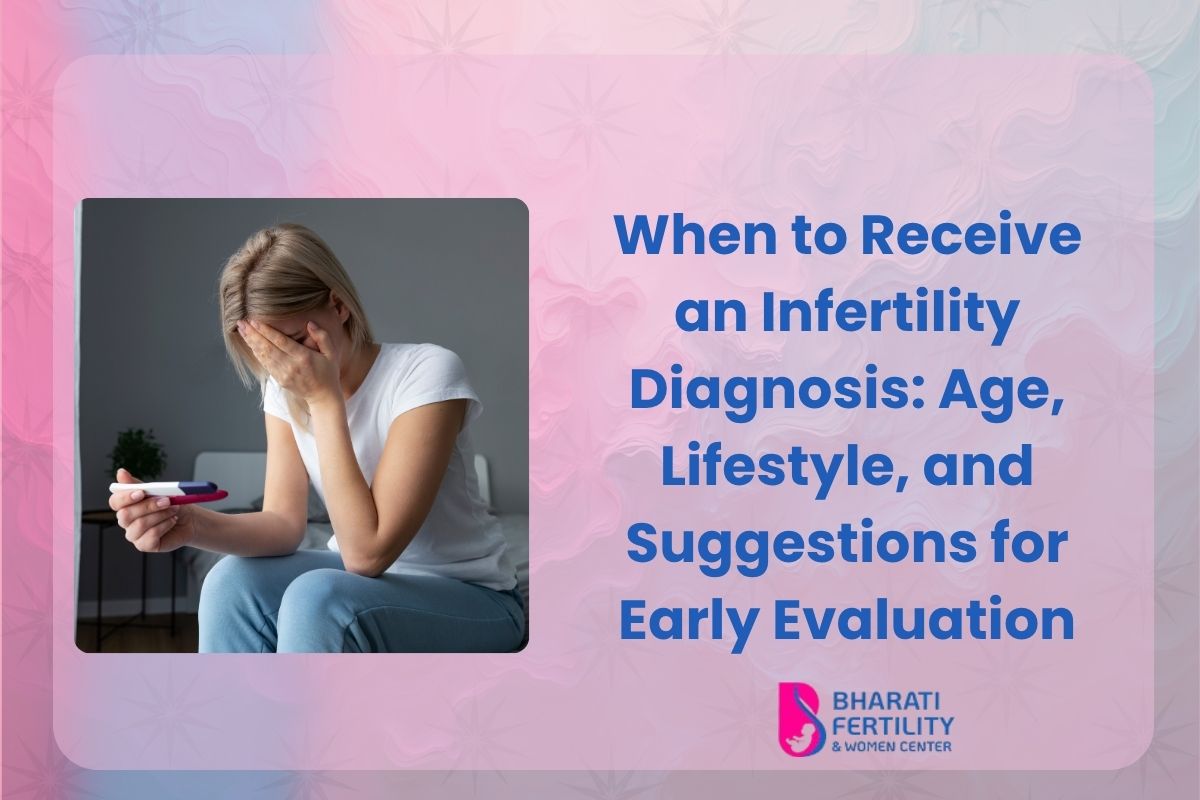Best Gynecologist in Mylapore, Chennai
When to Receive an Infertility Diagnosis: Age, Lifestyle, and Suggestions for Early Evaluation

Experiencing trouble conceiving can be overwhelming, leaving couples feeling both anxious and unsure. The single most important step to solve the problem is to obtain a correct diagnosis of infertility. Many couples hesitate to pursue medical care, believing that conception will occur “naturally.” Unfortunately, waiting too long can only complicate the emotional coming future and potentially lower success rates with intervention. No question, an evaluation at an earliest opportunity can only help save time and potentially impact overall success.
Importance of Age Regarding Infertility
Age is a significant factor with regard to fertility, especially for women. Fertility is highest during a woman’s 20’s, but begins to decline on a gradient after age 30. By the time a woman reaches 35, those chances of conceiving are significantly dropped as a result of both the quantity and the quality of the egg being produced. Men may also experience a decline in their fertility, but typically at a slower rate with respect to factors like motility (movement) and count (percentage of swimmers). By being informed about the connection between age and infertility, couples can make better family planning decisions. For couples who want to postpone reproduction, being aware of the impact of age may have them think about options of egg or sperm preservation for the future.
Assessing Early Infertility
Medical professionals commonly advise couples younger than the age of 35 to try to conceive naturally for a year before pursuing medical evaluation. For women over 35, the time frame is shortened to roughly six months before evaluation would be appropriate.
In some situations, couples should not wait that long. For example:
1.Women with absent or irregular menstrual cycles.
2.Men with a known history of low sperm count or poor performance.
3.Couples with a prior diagnosis of medical disorders like PCOS, endometriosis, or thyroid dysfunction.
In these situations, working up early infertility is important. The sooner you know if there is a medical issue to address, the sooner you can treat it; medications or assisted methods of conception such as IUI or IVF may then be pursued based on the evaluation results.
Lifestyle Factors Not to Ignore
In our modern world, lifestyle is one of the most significant factors influencing reproductive health. Stressful workloads, minimal work-life balance, insufficient sleep, poor nutrition, and a sedentary lifestyle all contribute to impairments of fertility. Lifestyle factors that include smoking, alcohol consumption, excessive caffeine consumption, and obesity greatly increase your chances of infertility as well. Younger couples facing infertility is incredibly concerning in this day and age due to risky modern lifestyle choices. The good news is many of the lifestyle changes may be small and can ultimately increase your chances of conception if carried out consistently.can greatly enhance the probability of conception. Some positive actions include:
1.Eating a balanced diet that is full of nutrients.
2.Having a healthy body weight by exercising regularly.
3.Getting sufficient quality sleep.
4.Reducing stress with yoga, meditation, or hobbies.
5.Not using cigarettes and limiting alcohol.
Not only does embracing these changes help improve fertility, but they also benefit overall health, which is very important during pregnancy.
Taking the Next Step
If you and your partner are having a difficult time getting pregnant, don’t wait to see a professional. An experienced physician will guide you through the process of identifying what the cause of infertility is. Then the physician will recommend the best treatment options for you. Whether that includes making simple lifestyle changes, medications, and/or advanced procedures like IUI or IVF, utilizing medical assistance early will provide you with clarity and confidence to move forward in your journey. Couples in southern India should consider contacting a trusted infertility hospital in Chennai for answers and a further developed treatment plan.
Final Thoughts
Infertility can be an emotionally burdensome experience, but it does not have to be the end of the road to parenthood. Armed with an appropriate infertility diagnosis, knowledge of the role of age in infertility, timely testing and evaluation, and healthy changes in lifestyle, couples can significantly improve their chances for conception. The goal is to take action sooner rather than later, as making the right moves early can help couples begin their journey to parenthood.


